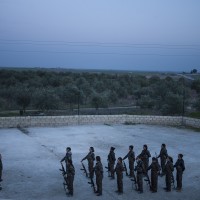
First Czech President Tomáš Garrigue Masaryk once said, “We have the democracy, now we only need some democrats”. Observing the current political situation in the country, one could say “Well ,we have the government declaration, now we only need a government”. The two potential coalition parties (the ANO movement and the Social Democrats) have finally reached the consensus on how the country should look like under their second term of governance. But the fate of the coalition will be decided similarly as in Germany – by social democrats’ internal referendum.
After almost half a year since the elections, the Czech Republic is about to have a partially new government led by businessman Andrej Babiš. Previous coalition of ANO and the Social Democrats will exchange their third partner, the Christian Democrats, for silent support of the Communist Party. This position would definitively confirm that the communists now hold the most power in the country since the Velvet Revolution in 1989. Despite the completed government declaration, the further political fate of the country remains unclear because the participation of the Social Democrats in the government is yet to be decided in the inter-party referendum.
Despite the fact that both coalition parties are pro-European and democratic, when reading between the lines of the government declaration one might notice that its tone is not so much in line with those values. The strong influence of the Communists is noticeable. The government, dependent on the communist support,will be, of course, forced to moderate its pro-Atlantic and pro-European geopolitical orientation. Coalition plans concerning the defence strategy might serve as the best proof.
NATO and Security
On paper everything looks more than good. Government confirms the membership in the NATO to be the corner stone of its military strategy. What is, however, new, is the fact that the UN membership has now bigger relevance for the Czech military orientation than the NATO. The government also intends to increase the defence spending from 1 percent to 1.4 percent by the end of their mandate and to have an army of at least 30,000 professional soldiers by 2025.
The government is well aware of the threat which Russia under the rule of its president Vladimir Putin poses to the European democracies. They acknowledge the existence of hybrid war based on the Gerasimov doctrine and intend to build military capacities able to tackle disinformation campaigns and to prevent (or resist) cyber-attacks.
However, the communists made it very clear that they do not intend to support any government which would increase the engagement of the Czech Republic in foreign military missions. They are also strongly against any military operations which do not have the mandate from the Security Council of the United Nations. Needless to say, having Russia on the very some council, where approval of all the members is needed to legitimize any military actions, significantly complicates any attempts to increase the military assistance granted to the countries which are in the sphere of interest of the Kremlin. This means that the ability of the Czech Republic to help their eastern partners increase their military readiness in the case of Russian aggression will be limited.
CR and the EU
The government treaty declares the membership in the EU (and the NATO) to be its foreign policy priority. The centre-leftist coalition has even an ambition to push through a reform of the Union. Nobody should be surprised by the complete and clear rejection of the mandatory quota for the division of refugees.
The coalition is also not so Euro-optimistic in its monetary policy. The government declaration clearly states that the government will not aspire for the membership in the Eurozone. Since Euro is widely unpopular among eurosceptical Czechs, such a stance could be interpreted as yet another sign of increasing populism and nationalism in the once business- and Western-oriented party.
Torn Social Democrats
Nevertheless, the future of the communist-supported government remains unclear. Its fate lies now in the hands of the members of the party, who will vote in the referendum on the party’s participation in the government by the end of Jun 2018. And not even the bravest political commentators dare to predict its outcome. With the political stakes rising, it starts to become obvious that the only fierce supporter of the coalition is Chairman of the party Jan Hamáček. He has to defend his decision to more and more growing opposition. Fragmentation of the party proves also the fact that all the decisions connected to the government creation have been approved only by a very close majority.
Unprecedentedly, part of the inter-partial opposition became the club of social democratic senators. This means that if the government is approved, part of its opposition will constitute the members of the ruling party in the Upper House, which might not be very helpful to the stability of an already very shaky government.






















